20+ SAMPLE Job Report
-
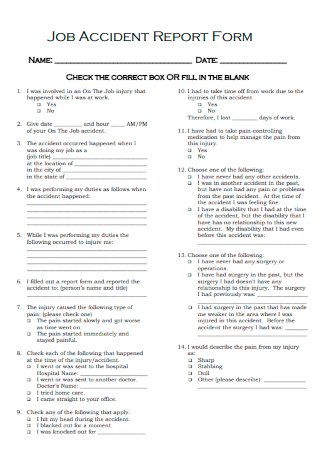
Job Accident Report Form
download now -
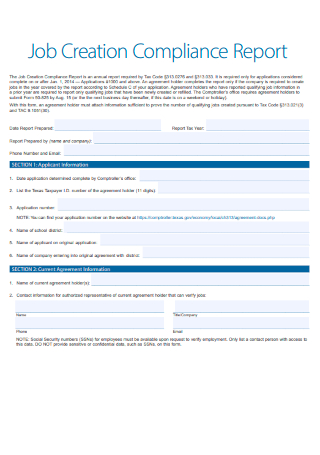
Job Creation Compliance Report
download now -
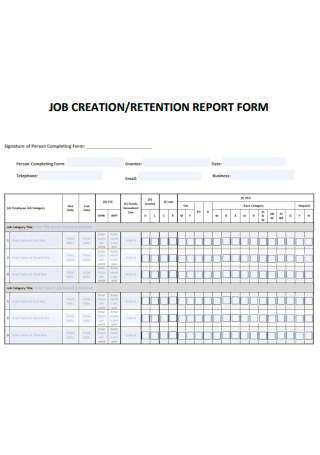
Job Creation & Retention Report
download now -
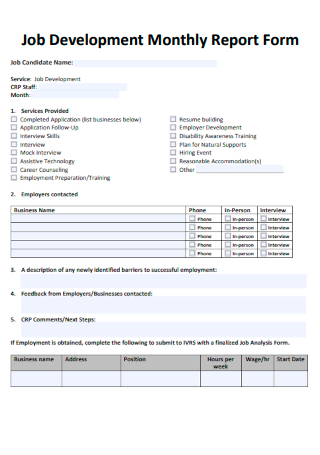
Job Development Monthly Report Form
download now -
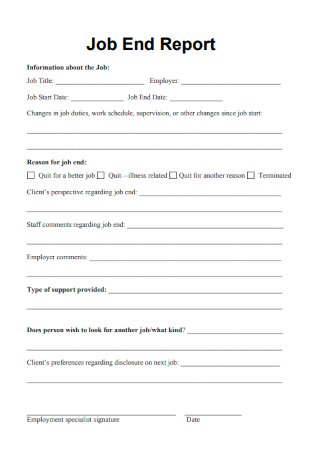
Job End Report
download now -
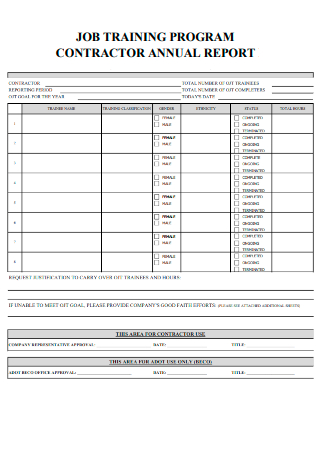
Job Training Program Contractor Annual Report
download now -
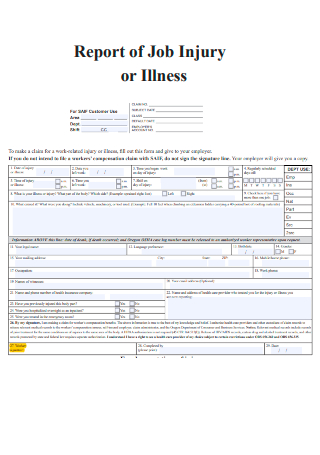
Report of Job Injury or Illness
download now -
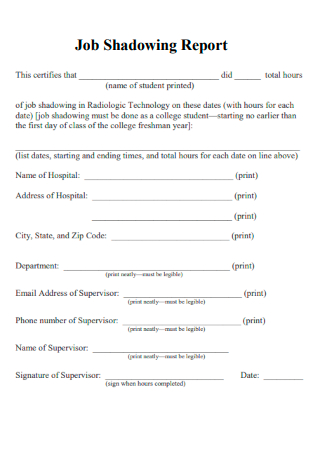
Job Shadowing Report
download now -
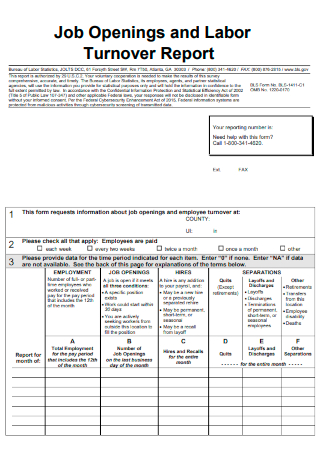
Job Openings and Labor Turnover Report
download now -
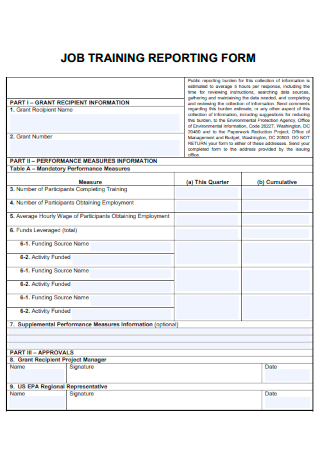
Job Training Reporting Form
download now -
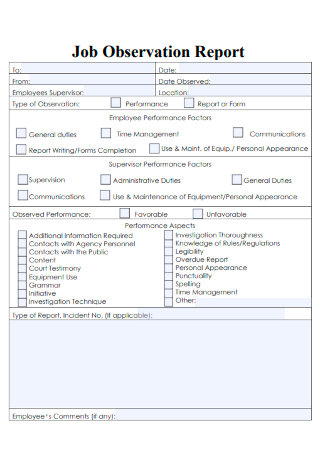
Job Observation Report
download now -
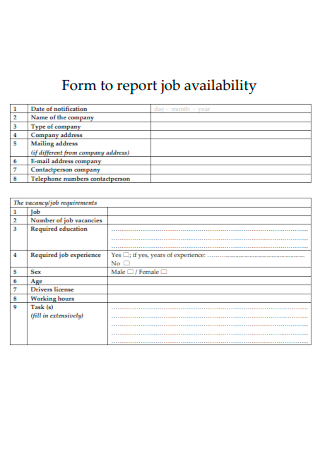
Form to Report Job Availability
download now -
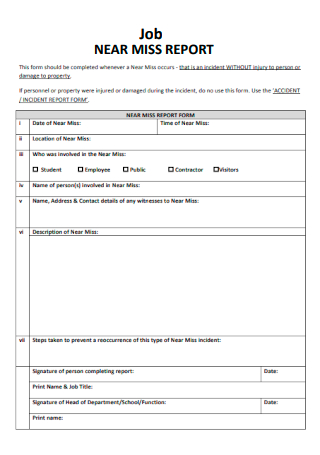
Job Near Miss Report
download now -
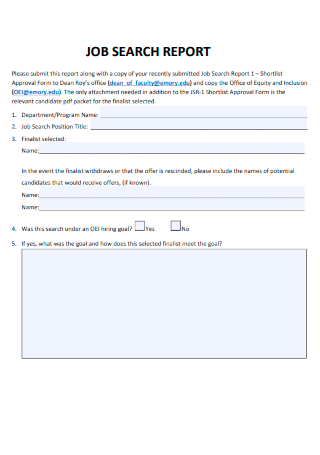
Job Search Report
download now -
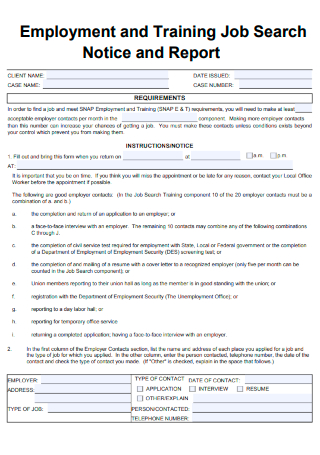
Employment and Training Job Search Notice and Report
download now -
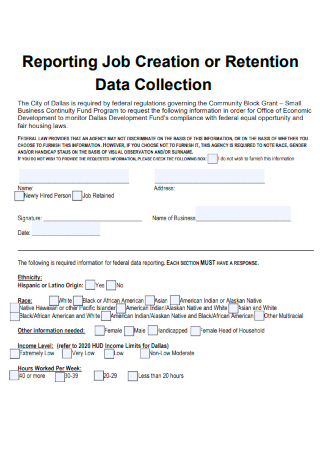
Reporting Job Creation or Retention Data Collection
download now -
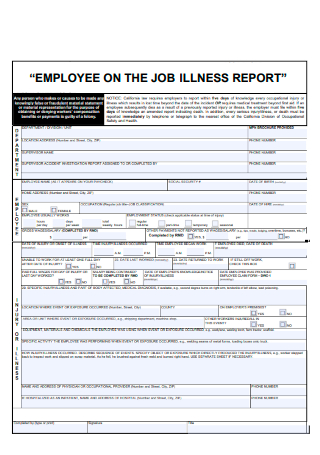
Employee on the Job Illness Report
download now -
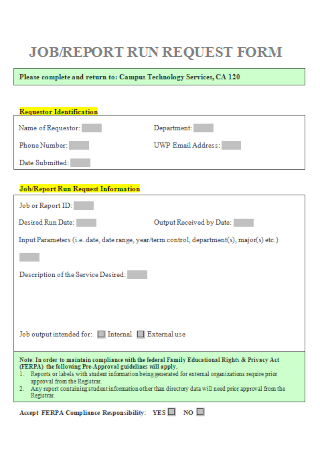
Job Report Run Request Form
download now -
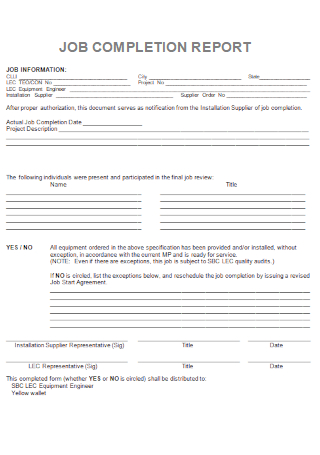
Job Completion Report
download now -
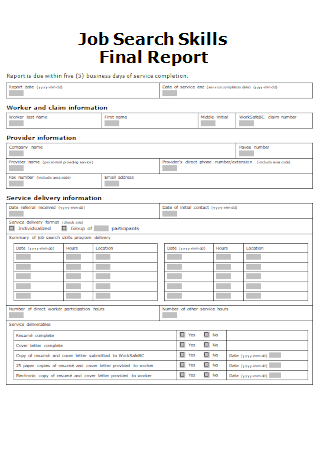
Job Search Skills Final Report
download now -
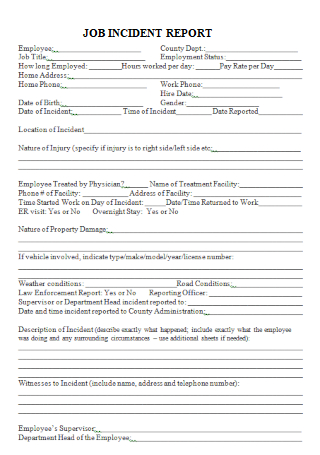
Job Incident Report
download now
What Is a Job Report?
In the workplace, job reports are formal reports that entail the methodical examination of positions within a company. The numerous aspects that are taken into consideration in the overall assessment of a job in an organizational hierarchy include the ranking, roles, description, worth, and value of a position in an organizational hierarchy. The Academy to Innovate Human Resources published an online essay describing the four basic job evaluation methodologies that are regularly utilized in the workplace. The ranking approach, job classification, factor-comparison method, and finally the point-factor method are all examples of classification methods.
Other templates are available on our website, and you can use them whenever you need them. They are as follows: job proposal, job contract proposal, job evaluation report, job analysis report, hr consulting contract, medical research proposal, job checklist, job contract checklist, job order, and other similar templates are available. This post will not only provide you with templates but will also provide you with important information that you need to know in order to complete your template.
Different Kinds of Jobs Available
The same can’t be said for all jobs. Furthermore, there are many other types of professions available on the market, each with its own set of criteria, rewards, and limits to consider. Some jobs are clearly higher compensated than others, while some can be less stressful than others on a comparative basis. Because the work market is constantly expanding and changing, it can be challenging to find a position that is perfectly suited to your skills and interests, especially for those who are just starting out in their professional lives. The examples that follow describe some of the most common sorts of occupations that are now accessible on the market.
Skills Needed in a Job
Being able to keep up with the constantly changing needs of the work market can be difficult in this modern age. The skills and training hours required for specialized jobs are distinct from those required for general labor. However, these abilities and skills can be learned and developed, which is a good thing. It may be becoming increasingly tough to navigate the professional world in today’s globe, but it is not impossible with the correct amount of effort and commitment. The characteristics listed below are some of the most crucial characteristics required to do good work, regardless of the type of job.
Steps in Writing a Job Report
In order to produce an acceptable job report, you must first ensure that you have the appropriate resources and information available. It is critical to collect information or perform research about a particular job. If you require a report but only have a limited amount of time to complete it, you can quickly and easily download a sample template from the list above and modify it to suit your needs. Once you’ve found a template that meets your requirements, simply follow the basic tutorial guide provided below.
Step 1: Describe the Job Responsibilities
The first step is to provide sufficient information about the position. Whatever work it is that you have been assigned with evaluating, you must first understand everything about it, including its requirements, scope, and constraints. You cannot evaluate anything about which you have little knowledge. All jobs, regardless of their title or position, should be subjected to periodic review and appraisal. Performing regular job evaluations not only helps to keep an organization’s structure contemporary and robust but it is also intended to be beneficial to both employees and the organization. As a result, the first section of your report should include a thorough description of the work. Simple bullet points can be used to create a more ordered arrangement if that is what you prefer.
Step 2: Create a Rubric for Report
Following the completion of the job description, the following stage is to establish the criteria for evaluating the candidate. It is necessary for you to have a standard unit of measurement that can be used to objectively assess the success or failure of a job in order to produce a believable report. There must be a scale on which ratings can be calculated, just as there must be on any fundamental evaluation form or report. When conducting a performance review, for example, it is necessary to use uniform criteria that can be applied to all jobs throughout a business. This would assist in streamlining and integrating all internal procedures and processes through the use of a common form.
Step 3: Identify Your Own Personal Strengths and Weaknesses.
A report must be as objective as possible, and it must portray all viewpoints in a fair and balanced manner. Now that the expectations and criteria of a specific work have been identified, you may proceed to evaluate it in accordance with the rubric that has been constructed. Do not simply list the various advantages and disadvantages of a job or of an employee; instead, provide supporting statements to back up your claims and arguments. If you are evaluating a job or position (as opposed to an employee), don’t just look at the needs, scope, and constraints of the function or position. Calculate the costs of the job as well as the advantages it will provide to the firm as a whole.
Step 4: Give Recommendations
Finally, make suggestions for how to fix the situation. After explaining both the expenses and benefits of a position, go one step further and suggest ways in which it could be made even better. This final portion of your report is where you will provide any final observations and recommendations regarding a specific career or employment. The purpose of making recommendations is to strive for continuous improvement while also encouraging continuous learning. In the vast majority of circumstances, there is always the opportunity to improve. As a result, when drafting your report, it is critical to consider what specific aspects of the task can be adjusted or changed to make it more effective.
FAQs
How do you write a job report?
To write an effective job evaluation report, you need to describe the job accurately, assess both its costs and benefits to the organization, and give sound recommendations. The ready-made templates above are editable and printable. Select a template then simply follow the detailed steps provided above.
What is a work evaluation report?
A work evaluation report is a formal report that assesses the performance of an employee. It evaluates both the positive and negative impact of one’s work. It is a report that offers recommendations for improvement as well.
What should be included in a report?
A basic report ought to include a background or general description, criteria, an objective assessment, summary, and recommendations.
A job report is a critical tool for any company or organization that wants to adopt, expand, and move forward in its operations. In order to be effective and thorough, a comprehensive and effective form must be used. Choose from a variety of free sample work report templates above to begin customizing your own employment report right away!
